It has been a long time coming. Genesis as a brand, I mean. We know why it exists: premium means profit. Manufacturers of ordinary cars look at the space that Audi, BMW and Mercedes-Benz occupy with envious eyes. And it was as long ago as 2004 that Hyundai first developed posh car aspirations of its own.
It took until 2008 for it to happen, with a car badged Hyundai Genesis, the second generation of which came to the UK from 2015, in right-hand drive and small numbers. Small, because while sales of the original Hyundai model in the US were good enough to prompt the establishment of the name as a brand in its own right, we’re a bit sniffy about that sort of thing in Europe.
Lexus was launched 31 years ago with a car – the LS400 – that did things unlike any other luxury saloon. And yet three decades later, its sales in the UK of posh Toyotas hover between 10,000 and 15,000 cars a year. Mercedes sells nearly five times that many A-Classes alone, because it’s easier to go downmarket than up. Ford’s Vignale models will show that. Likewise DS. Infiniti gave up entirely.
But, well, look: the Genesis brand is going to do well in the US, in China and likely elsewhere. Genesis and Hyundai have design, engineering and development centres in South Korea, the US and Europe, so it’s a global range. Even if it doesn’t do huge numbers in Europe, we’ll contribute a bit.
This, then, is a Genesis GV70. G for Genesis, V for Versatile, billed in some markets as a ‘premium urban SUV’, but it’s quite a big car here. It’s 4.7 metres long, which puts it at the same length as a BMW 3 Series, while prices start from £40,000. This one, a Luxury Line, starts at £42,820, but this test car sits at £50,620 including options. And although there are electrified Genesis models around or coming, this one, curiously, is launched as a petrol or diesel only. This one’s a diesel.
It goes up against, in terms of volume, a big player. With the GV70, Genesis isn’t trying to find a niche from where nobody else operates (I mean, good luck to it if it could these days), but instead it’s just a few quid and a few centimetres away from a BMW X3 or Mercedes-Benz GLC. Or, as we’ve chosen for these pages, an Audi Q5, a car that sold so many in its first iteration that it surprised even its own maker. It’s a car that in China sometimes outsold the US and Europe combined. It’s a global car – and one we like – so it fits the bill. And at this money, you get very similar positioning, power and performance to those of the Genesis.

The Genesis’s 2.2-litre diesel makes 207bhp while the Q5, facelifted late last year, is a 40 TDI, a £45,235 S line with options taking it to £54,465. Its 2.0-litre makes 201bhp, but its response is augmented slightly at low revs with a 12V mild-hybrid starter-generator that chips in while the turbo is spooling. Both cars are four-wheel drive and have longitudinally mounted engines, but the Genesis is predominantly rear-wheel drive, via an eight-speed torque-converter automatic, with the front axle occasionally receiving torque when needed. The Audi’s lengthways engine orientation, meanwhile, is a red herring – plenty of cars on this platform are front-driven only. Via a seven-speed dual-clutch automatic, this is a ‘mostly front-drive but sometimes thinking about the rear’ kind of car.

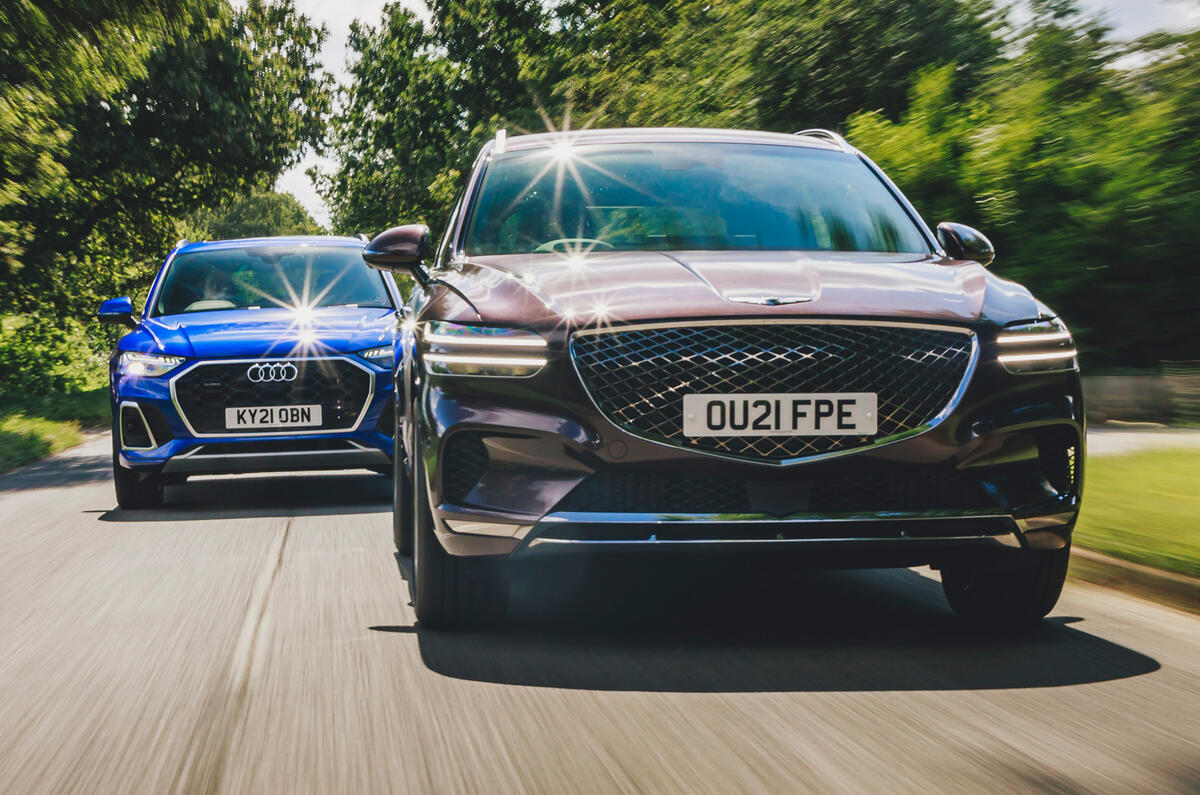
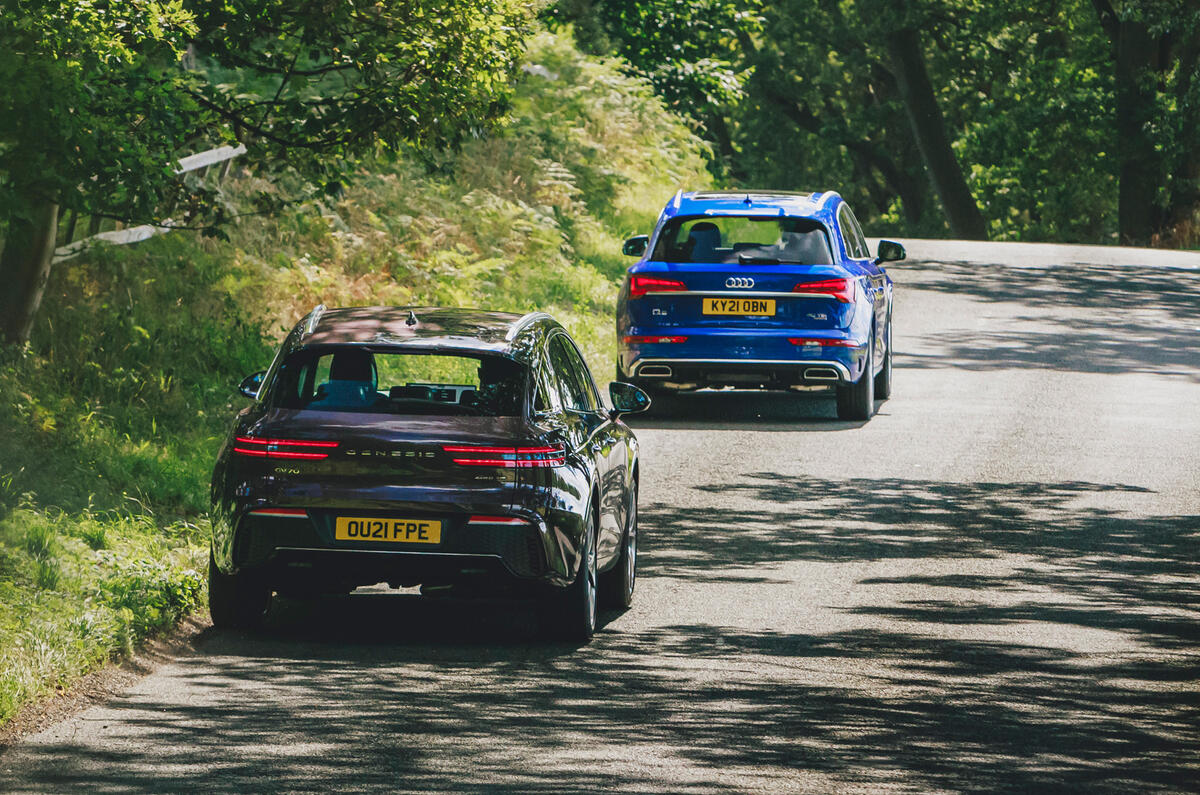
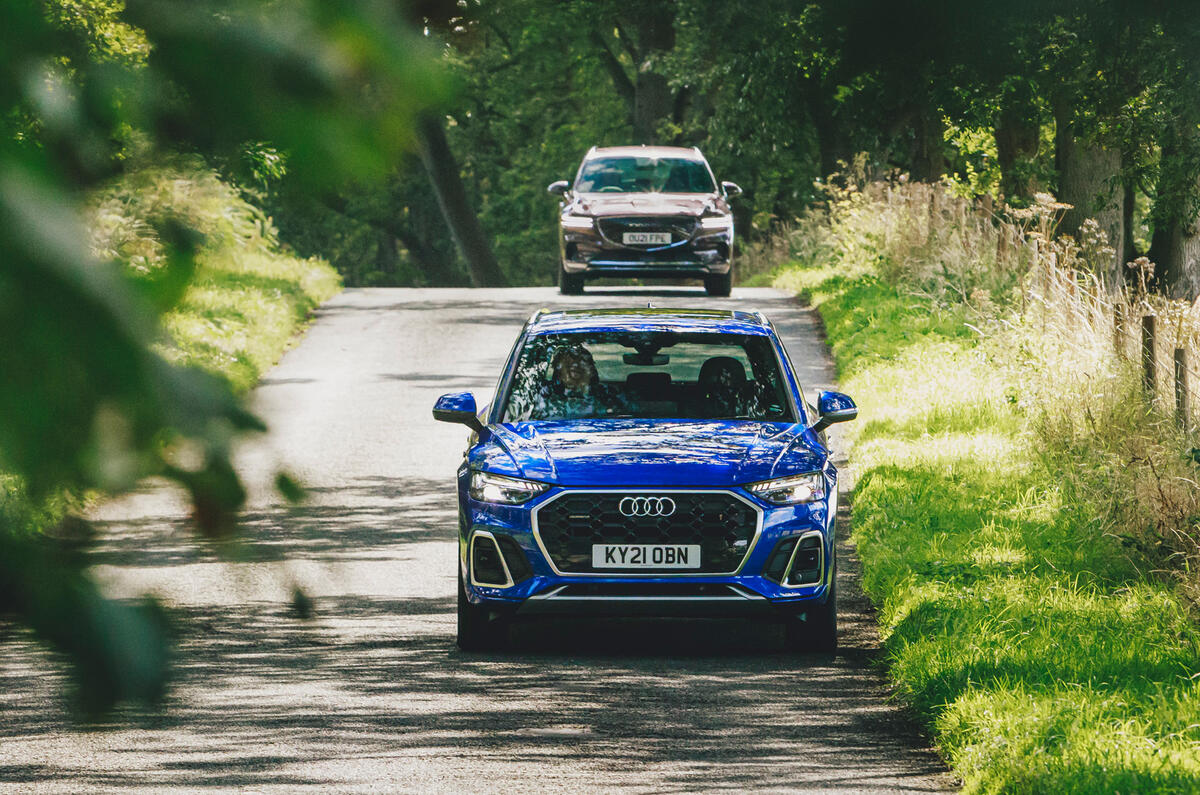
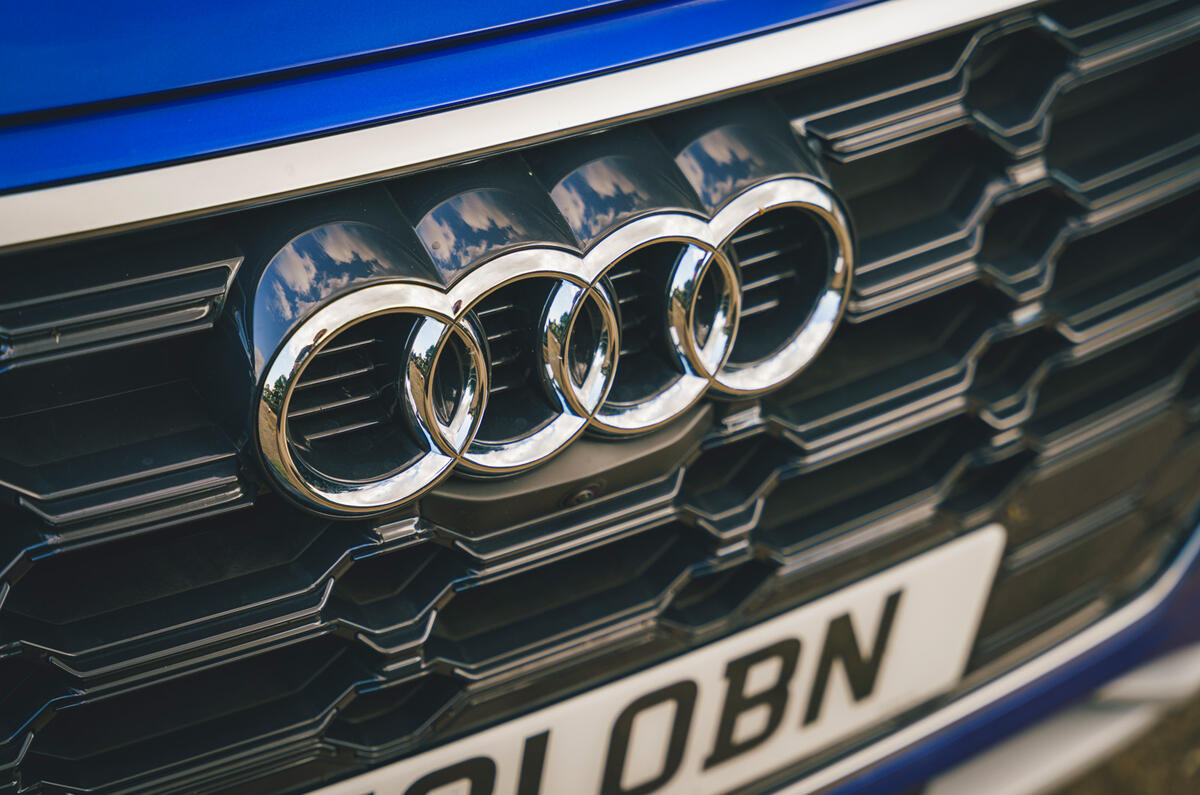
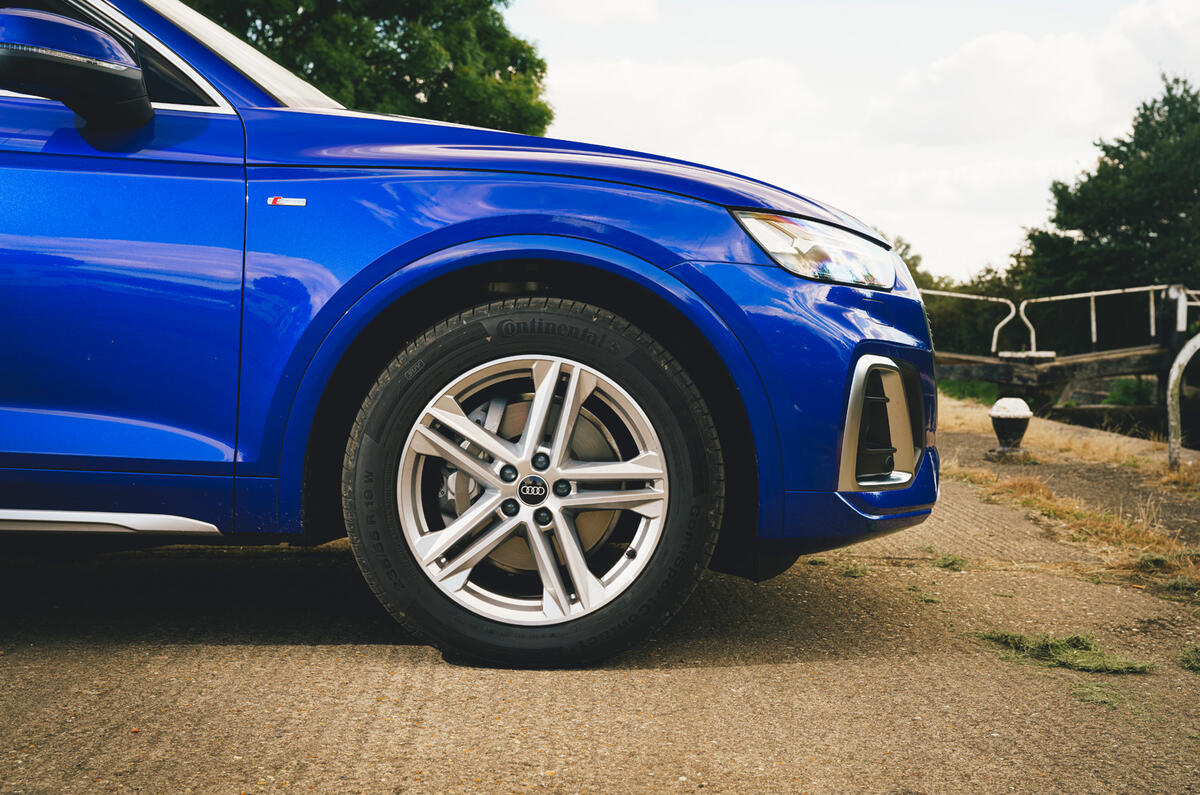
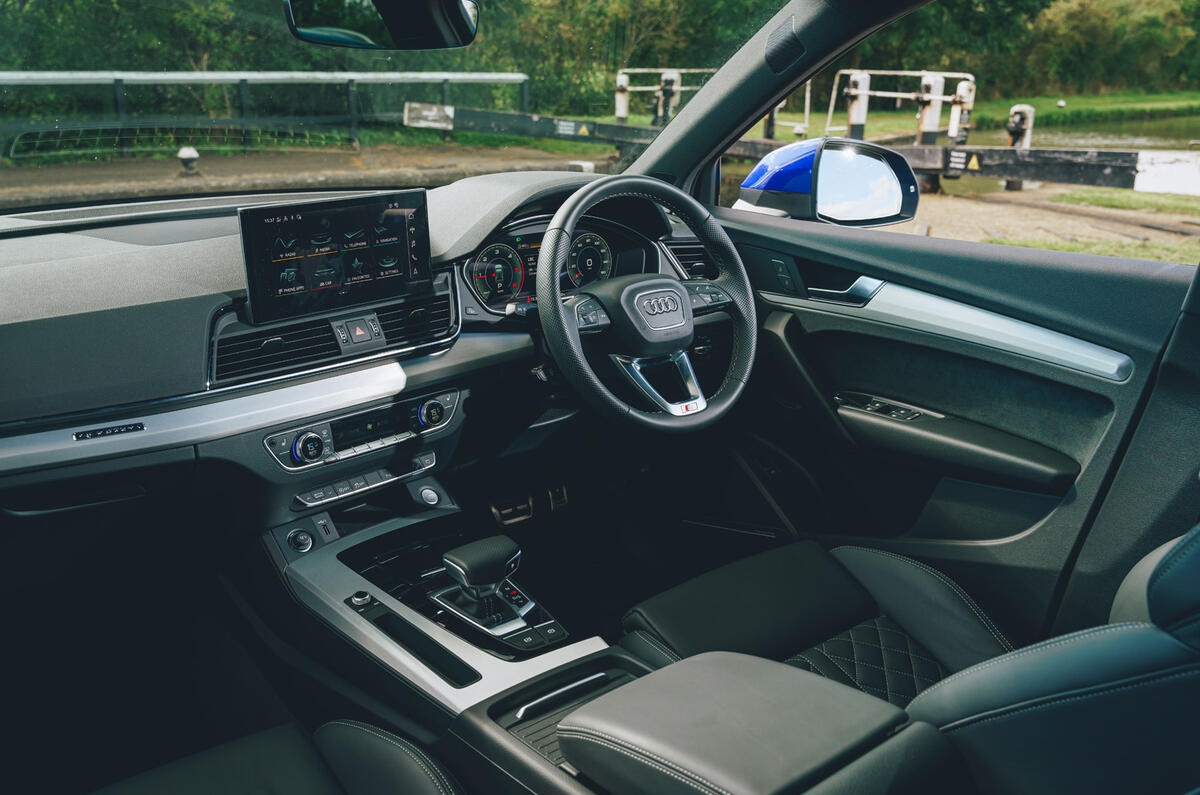
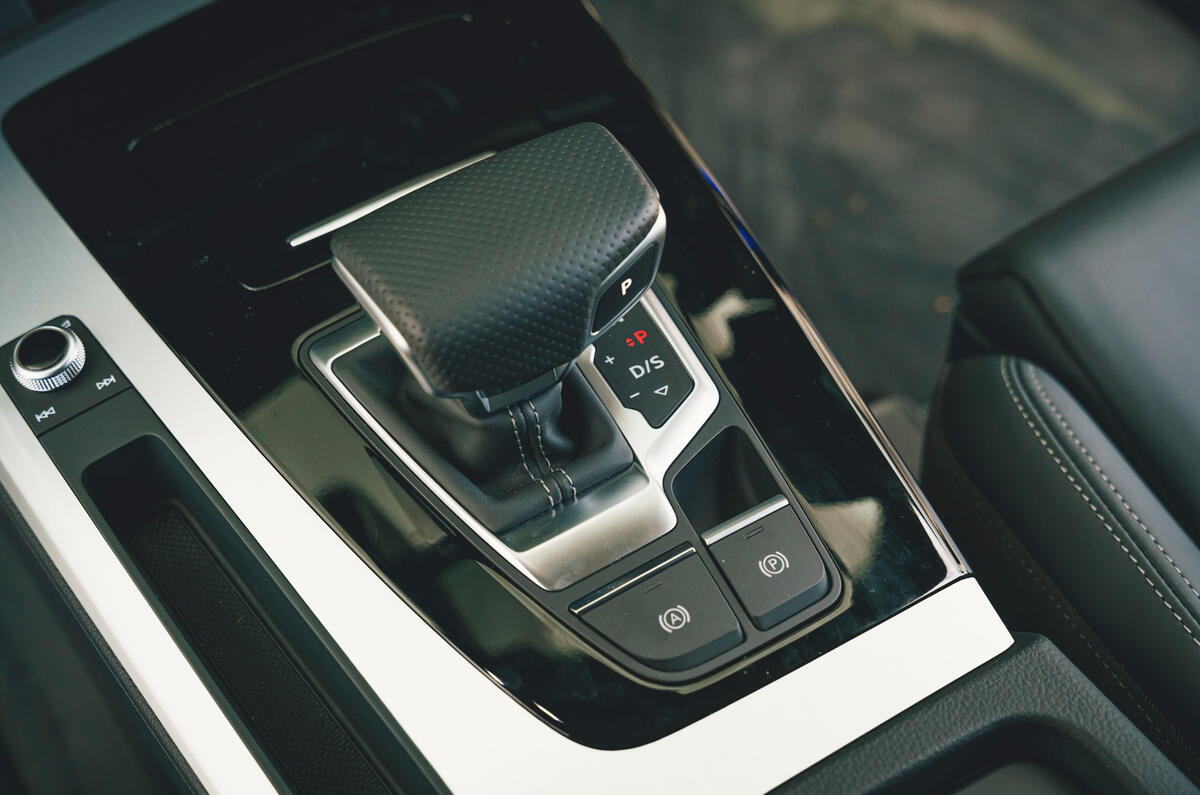
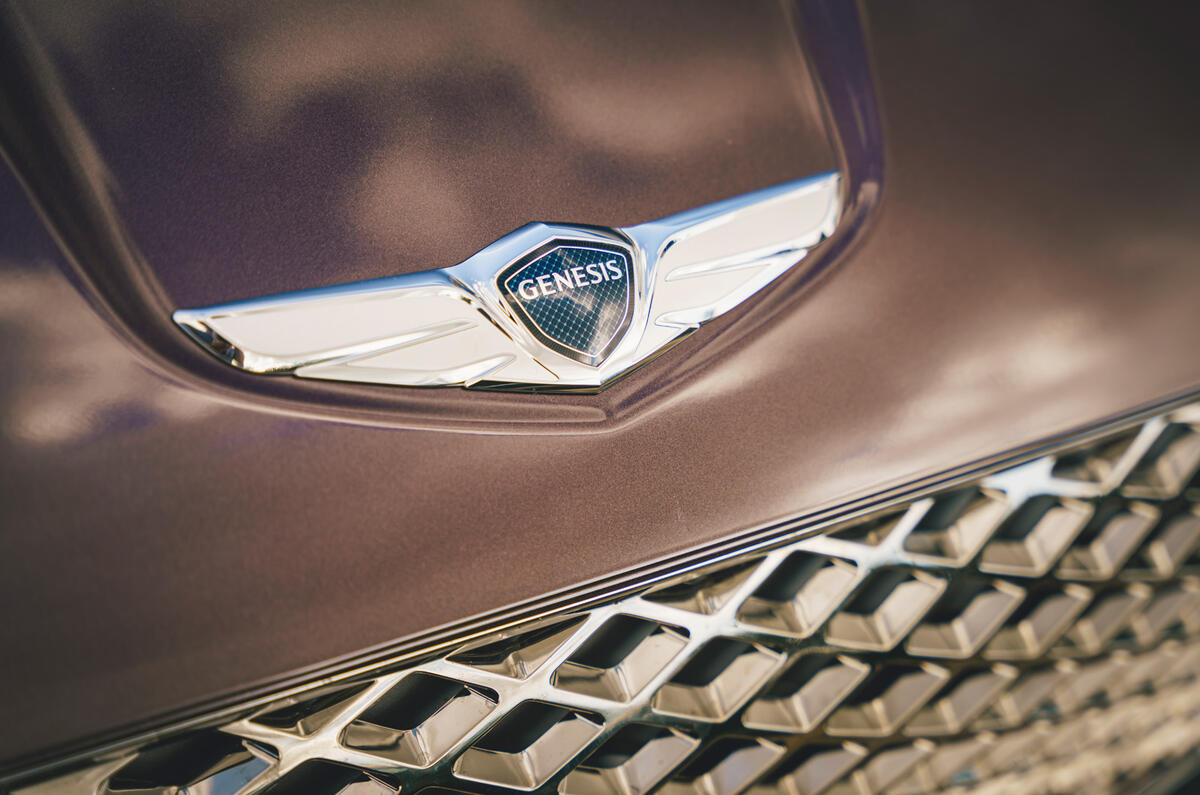
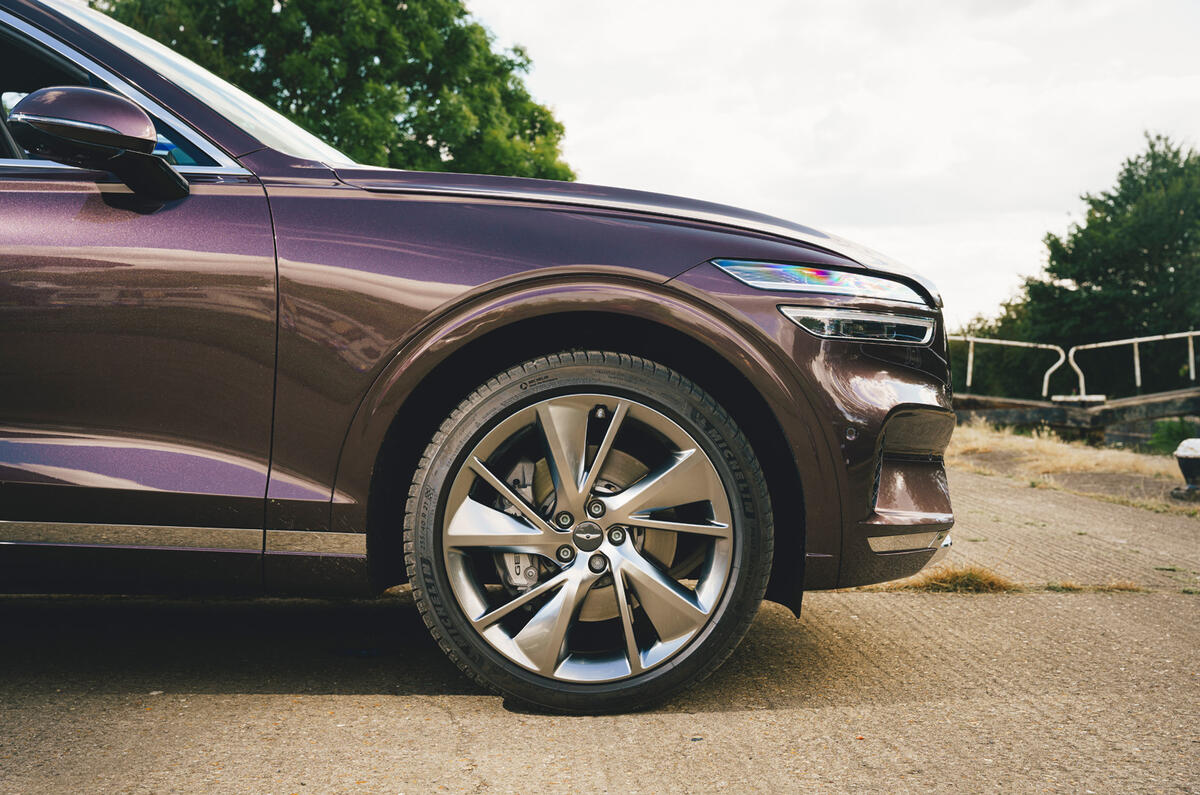
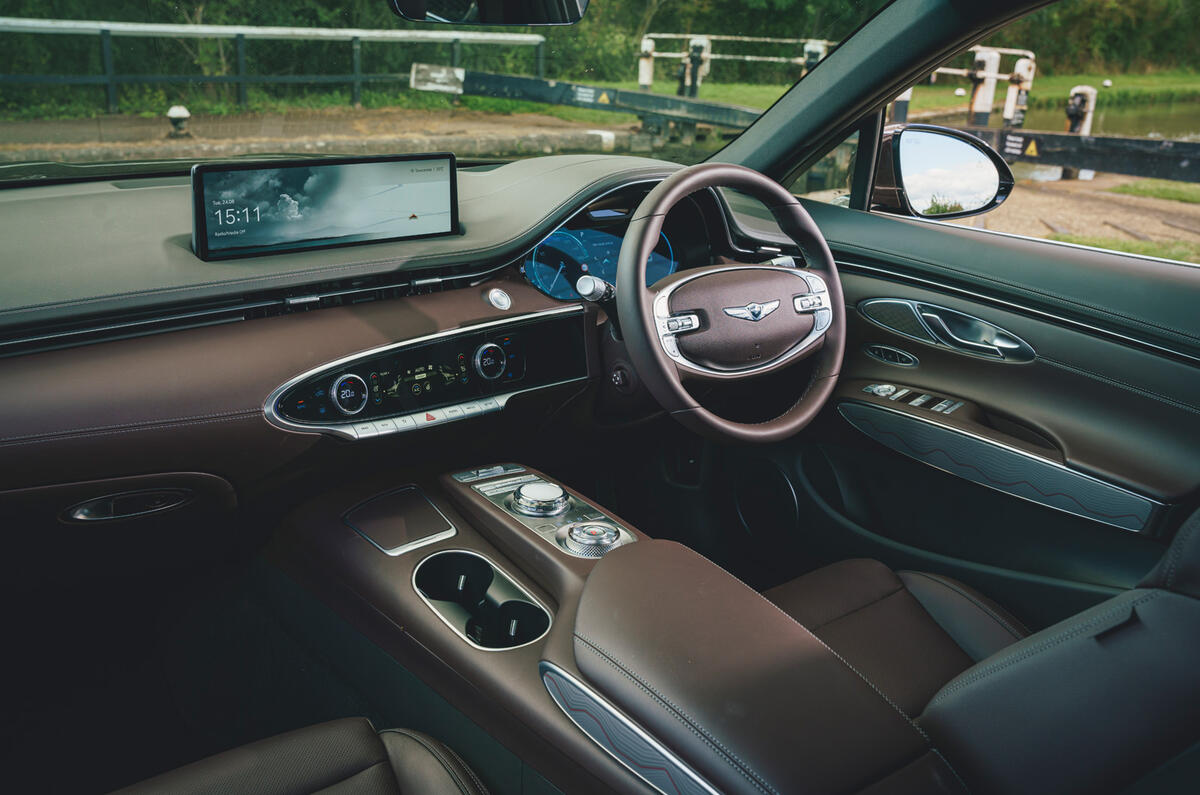

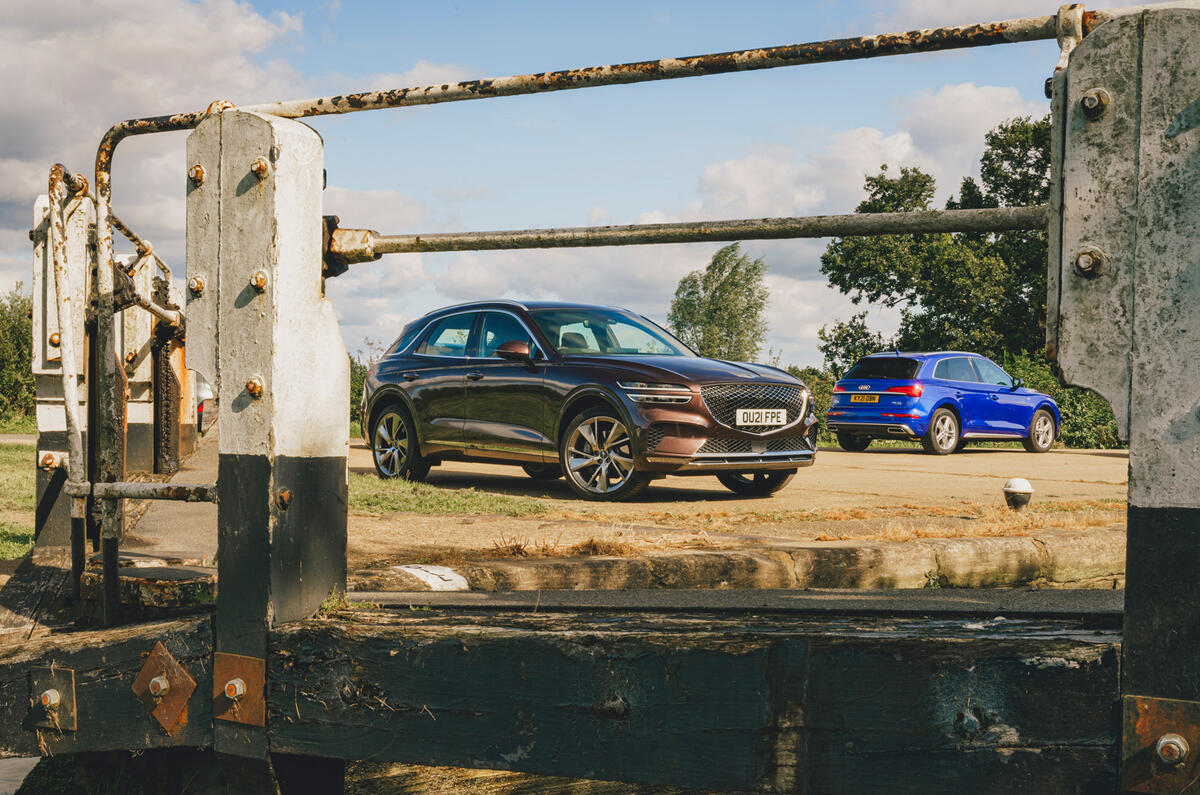








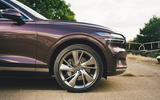
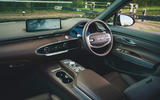



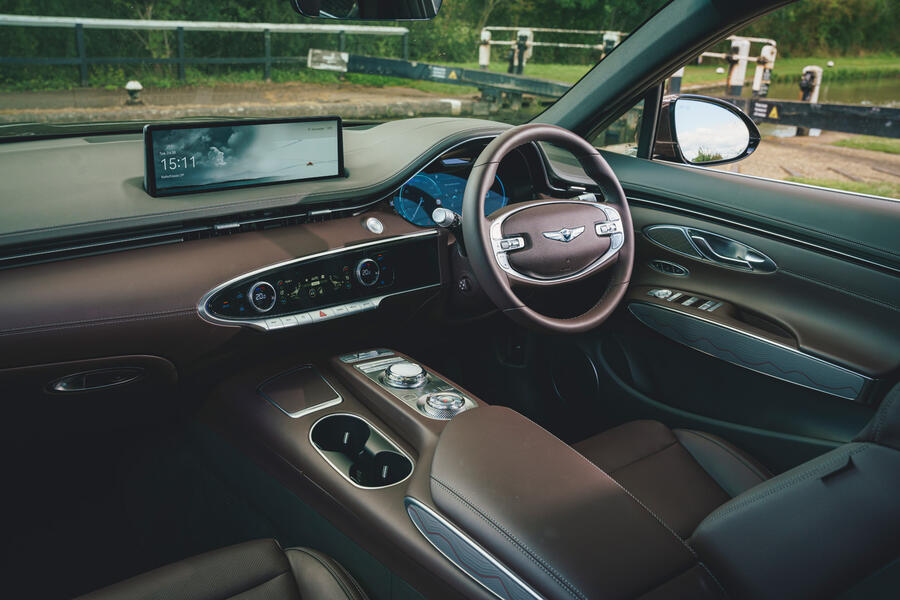
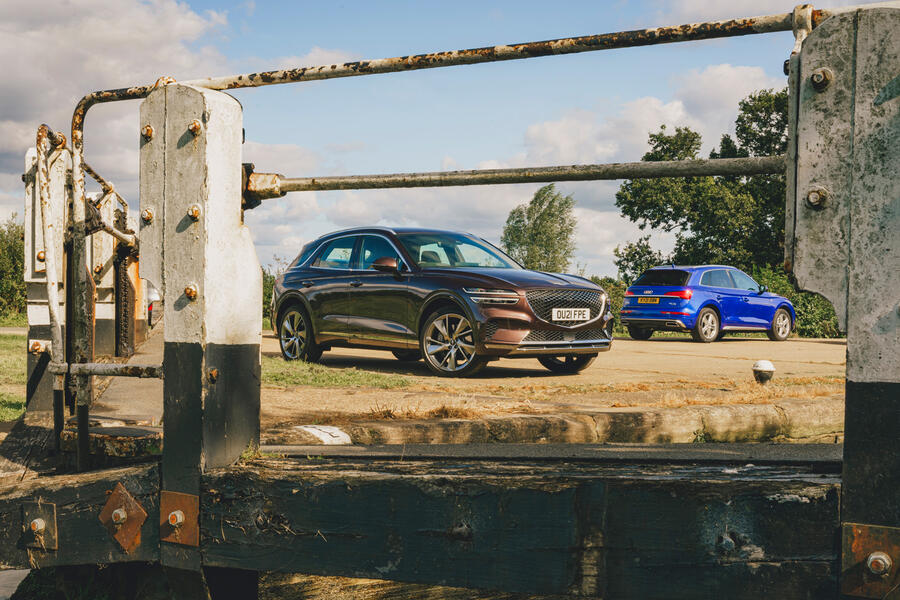




Join the debate
Add your comment
Exclusive, expensive luxury car beats tizzied-up VW. BIG surprise!!!
@Blah, Audi does have physical buttons,important controls all there. Close but the grill spoils it on the Genesis, just makes an OK car Ugly and ungainly